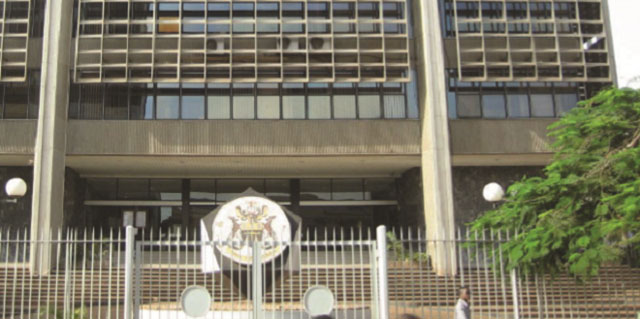
Expert solutions
Uganda’s economy has in the last five years been growing at rates far below the 5% minimum target largely on account of constrained internal and external demand, poor performance of agriculture sector, weak private sector credit and slow implementation of government infrastructure projects among other factors.
However, Mutebile says the economy gathered some momentum in the first half of 2017 and it will improve further going forward with projections being 5-5.5% supported by his accommodative monetary policy, recovery in external demand and foreign direct investment, increased activity in the agriculture sector due to improved weather conditions in addition to the fiscal stimulus outlined in the budget for financial year 2017/18.
When The Independent sought out expert views, many were concerned that the volatile economy could continue to haunt commercial bank fortunes unless it is urgently fixed.
“Banks can’t make money in a bad economy,” says Ddumba Ssentamu, the chairman board of Centenary Bank and former Vice Chancellor of Makerere University.
In an interview on Sept. 08, Ssentamu said the government needs to improve performance of the economy to boost investor confidence which will feed into performance of banks. Ssentamu, who formerly lectured economics at Makerere University, said government should prevent strikes, fight corruption, and improve accountability so as to attract more investments into the country for banks to work. He also said that government must show commitment towards investing in irrigation schemes so as to avoid bad weather hurting the main economic activity; agriculture, that is affecting repayment of agriculture loans by some borrowers.
In response to the reduced cost of credit noted in the supervision report, Isaac Nkote, a senior economics lecturer at Makerere University Business School (MUBS) told The Independent that reducing interest rates by commercial banks in line with the central bank rate is a good thing but growing private sector credit (PSC) for banks to make money remains a big challenge.
“Making a lending decision is a tough thing; it involves doing analysis of loan applicants and the economy,” Nkote said.
He said that growing PSC would require big borrowers to increase loan uptake as aggregate demand improves in the economy creating a good feel that things will get better. Then banks and other businesses can expect good performance in the future.
“But certainly the cost of borrowing is a key driver to lending,” he said, “Once you have consumer confidence, people are going to the market to buy and incomes are going up then certainly you will have things getting fixed.”
Augustus Nuwagaba, a consultant on economic transformation at REEV Consult International Limited told The Independent on Sept. 08 that the economy and the financial sector are twins that complement growth of one another.
He said that banks need to find cheaper sources of funds to ease cost of lending which more often results in bad loans. He said liberalisation of the pension sector would see commercial banks borrow from players cheaply. He also suggests that banks should consider listing shares on the stock market to raise cheap funds instead of depending on customer deposits which are unreliable; he also says that banks should improve financial disclosure and corporate governance aspects to attract cheap financing from international entities like the International Financial Cooperation (IFC).
On the big economy question, Nuwagaba said that Uganda’s economy planners need to focus investments in agriculture that employs majority of the population so as to boost aggregate demand. He suggests that value addition, irrigation schemes, agriculture roads, searching for external markets, growing exports and ensuring good standards for goods and services would improve the sector’s performance.
He also says that people’s work mindset must change. “People should love work and shun mediocrity,” Nuwagaba said.
He said that for all these things to happen government must be in the driving seat with regulations, good economic policy, good laws and action plans.
 The Independent Uganda: You get the Truth we Pay the Price
The Independent Uganda: You get the Truth we Pay the Price


